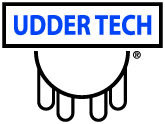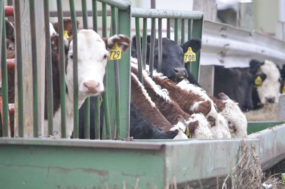Dr. Brent Bean, AgriLife Extension agronomist in Amarillo, said insect infestation and disease infections were low throughout most of the region and only a few low-lying fields in the southwest Panhandle were damaged from freeze injury. So the biggest contributor to the wheat crop’s demise was drought.
However, AgriLife Extension was still able to gain much data from variety trials across the region that will be useful as producers begin planning the new crop,
Bean said. Seven of the nine dryland trials planted were harvested, as were trials at six irrigated locations around the High Plains and the New Mexico State University station near Clovis, N.M.
Across the region, most harvested wheat fields were planted late on land fallowed in 2010, Bean said.
Irrigated wheat didn’t fair much better than dryland, he said. Yields were down because many producers had to quit watering wheat early to concentrate their irrigation water on establishing corn or cotton.
Compounding the drought conditions in the irrigated variety trials were hot air temperatures during flowering and late freeze damage that pushed yields even lower, Bean said.
The highest average yields, 67 bushels per acre, were recorded in the Dimmitt trial. Three varieties - TAM 112, Winterhawk and TAM 113 - yielded in the top 25 percent at five of the six locations.
“This is only the second year we have had Winterhawk, a Westbred variety, in our trials,” he said. “TAM 113 was released this year by Texas AgriLife Research and will not be commercially available until 2012.”
Bean said other top varieties were TAM 111, OKO7209 – an Oklahoma State University experimental, Duster and Bill Brown. Noteworthy also were Hatcher and the AgriLife Research experimental TX05A001188.
In the dryland trials, the lowest average yield, 12.1 bushels per acre, was at Etter and the highest average yield, 34.7 bushels per acre, was at the Groom location, he said. All of the dryland locations were on fallowed land.
Those locations in the eastern part of the Panhandle - Groom, Silverton, Perryton – that yielded the highest greatly benefitted from a late fall rain, Bean said.
Varieties yielding in the top 25 percent in at least four of the seven locations were TAM 113, TAM 112, OKO7209, Armour, Winterhawk and TX05A001188. Other varieties of note were Hatcher, AP 503 CL, OK07214, TAM 111, Duster and Mace.
“Mace is a Nebraska variety with good wheat streak mosaic tolerance,” Bean said. “This is the second year it has been in our trials and overall its yield has been average.”
Bean said varieties are recommended after reviewing their performance at multiple locations over a minimum of three years. Emphasis is placed on the consistency of varieties yielding in the top 25 percent.
For example, TAM 111 and TAM 112 have each been in the top 25 percent in 18 of 28 dryland variety trials in the High Plains during the last five years. Their consistent high yield across a range of conditions easily qualifies them as recommended varieties for dryland production, he said.
Other varieties that are recommended for dryland are Hatcher, Endurance, Duster, Bill Brown and Armour, Bean said. Endurance is especially good as a dual-purpose wheat for grazing and grain production. Hatcher and Bill Brown are Colorado State varieties with Russian wheat aphid tolerance.
Armour is a Westbred variety making its debut on the recommendation list, he said. Armour is an early maturing variety and can be short, although there was no trouble with harvest.
The varieties recommended for full- and limited-irrigation are the same as those listed for dryland with just a couple of exceptions, Bean said.
“TAM 112 is not recommended for full irrigation only because straw strength can become an issue under high water and nitrogen conditions,” he said. TAM 304 will work well under full irrigation because of its excellent straw strength and good disease resistance.
“Armour would likely be okay for limited irrigation, but yields have only been slightly above average under full irrigation. TAM 113 does not make the recommendation list only because it will not be available until 2012.”
Bean said yield data from previous years as well as variety descriptions and other information can be found at the following website under the agronomy link at http://amarillo.tamu.edu/amarillo-center-programs.
Test weights and other information are available by contacting Bean at b-bean@tamu.edu or 806-677-5600. 







